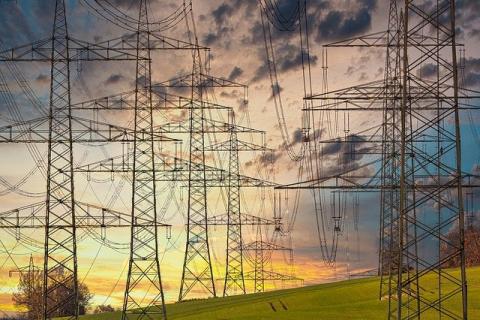
Region: Global
Country: Global / Non-Specific
Sector: Energy and Power
Topic: Fragile and Conflict-Affected States
Keywords: Fragile and Conflict-Affected States - FCS, Energy and Power
Document Link(s):
Document Summary:
Expanding energy access in fragile contexts is critical for these settings to recover from COVID-19 and escape fragility. However, investing in fragile contexts, with their higher perceived risks, more undeveloped markets, insufficient infrastructure, and constrained state capacity, remains difficult. This policy paper argues that these challenges can be overcome through the concerted efforts of a range of stakeholders, including national governments, donors, development finance institutions, non-governmental organisations, and the private sector. Each of these entities can make specific contributions to joint efforts to expand energy access, and can leverage a range of innovative financing mechanisms and business models in this endeavour.
Document Details:
Poor energy access in fragile contexts impedes development, traps people in extreme poverty, and creates structural conditions for the persistence of conflict and social, political, and economic instability. Fragility affects not only those living in these countries – it drives the global challenges of mass migration, terrorism, and trafficking that impact us all.
As we aspire to build back more resiliently and inclusively post COVID-19, we cannot neglect those living in the world’s most challenging places. Investing in energy access in these contexts is critical to power the economic opportunities needed to support recovery, lift people out of poverty, and enable these countries to escape fragility.
Although overseas development assistance (ODA) spending in developing countries on energy has been increasing over time, it has persistently favoured and become increasingly skewed towards non-fragile settings. In 2018, spending on energy in non- fragile settings was nearly double that in fragile settings and almost four times higher than in extremely fragile locations. This is reflective, in part, of the higher uncertainty and risks associated with investing in fragile settings.
However, if we are to succeed in global efforts to achieve universal energy access and reduce poverty and inequality, we need to overcome the challenges of energy investments in fragile contexts. A new approach is needed: one that brings together a range of stakeholders to scale up investments in energy solutions that work in fragile contexts.
Fragile contexts need energy solutions that are resilient in the face of conflict and uncertainty, and are also affordable and environmentally sustainable. Distributed or off-grid systems hold much potential as they are modular and disperse risk, making them less vulnerable to the single point of failure risks associated with large-scale centralised projects.
Distributed generation systems also lend themselves to use of renewable energy sources. Cost reductions in renewable energy technologies mean that they are now the most affordable off-grid energy option in most instances. Whereas previously fragile contexts could not afford to go green, now they cannot afford not to. Importantly, for the first time, we also have a convergence in what is good for the climate, what is needed to unlock economic growth in fragile states, and what is technologically feasible.
We have the technology needed to achieve universal energy access; now, we need to unlock financing mechanisms to make this a reality. New commitments from and partnerships between a range of stakeholders are needed; national governments, donors, development finance institutions, and the private sector all have key contributions
to make. Financing facilities from multilateral, bilateral, and philanthropic donors and innovative financing instruments should be scaled up to crowd in greater private investment. Additionally, the governments of fragile states have an important enabling role, including in creating environments more conducive to investment in their countries.
Never has expanding energy access in fragile contexts been more urgent – and never has it been more attainable. A concerted effort from all partners is needed to realise this goal.
Updated: November 19, 2022
Related Content
PPPs in Fragile and Conflict-Affected States (FCS)
Type of ResourceModels for Private Sector Engagement in FCS
Type of ResourceSuccess Factors for Private Engagement in FCS
Type of ResourcePPP Institutional, Legal, and Regulatory Frameworks in FCS
Type of ResourceSample PPP Project Documents, Contracts and Contractual Provisions in FCS
Type of ResourceCase Studies in FCS
Type of ResourceFurther Reading and Resources on FCS
Type of Resource